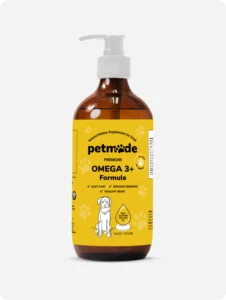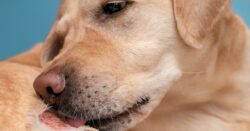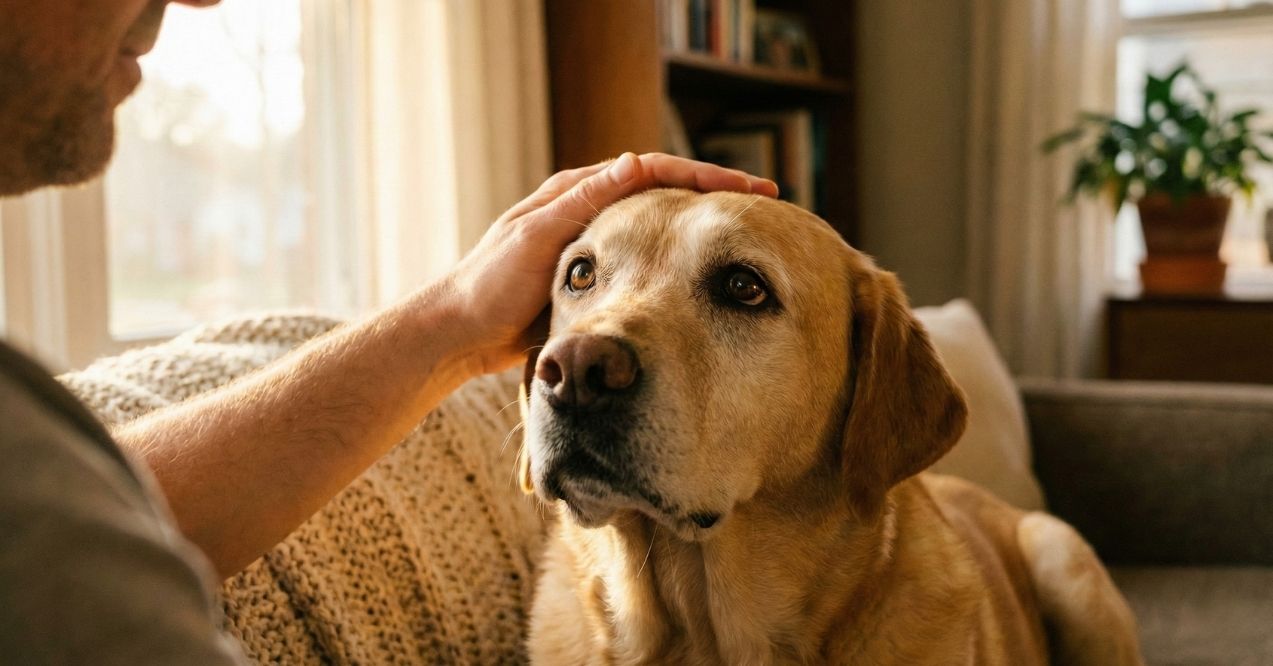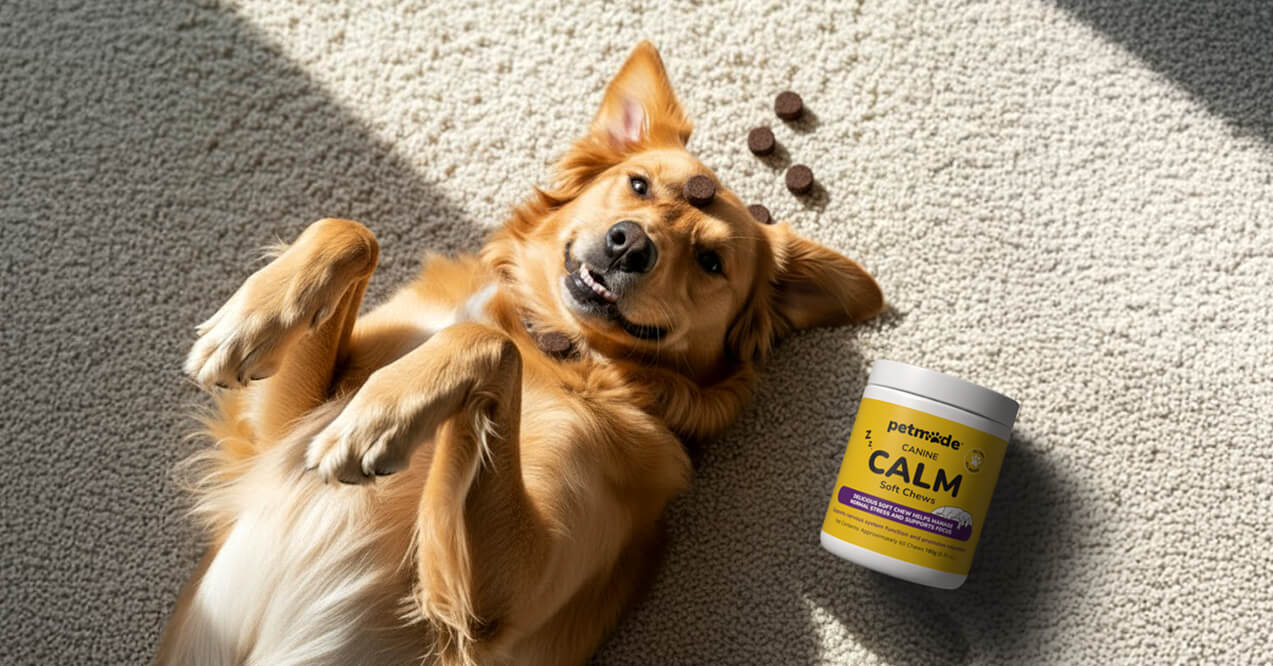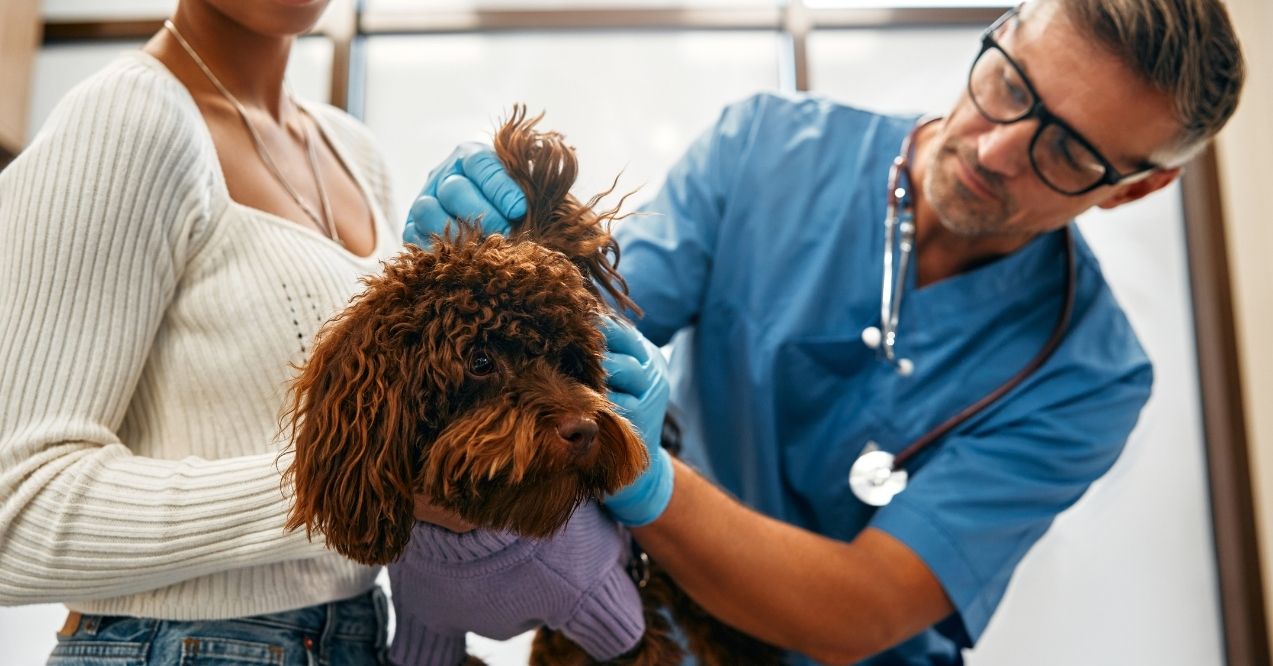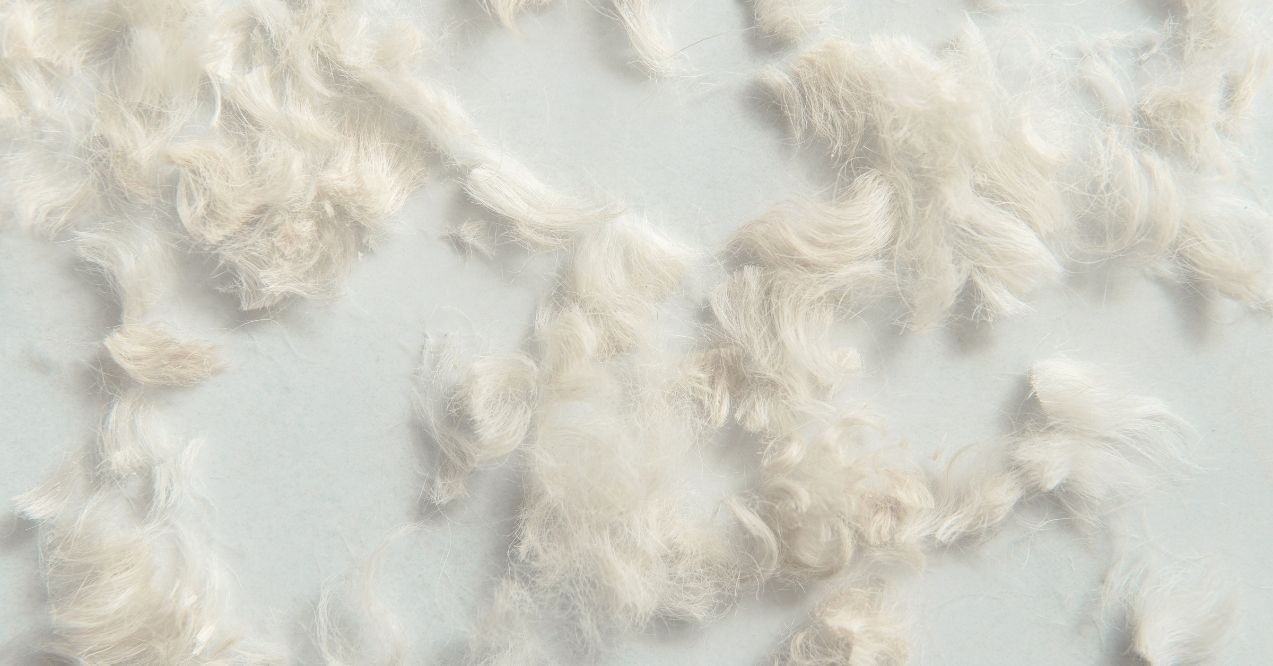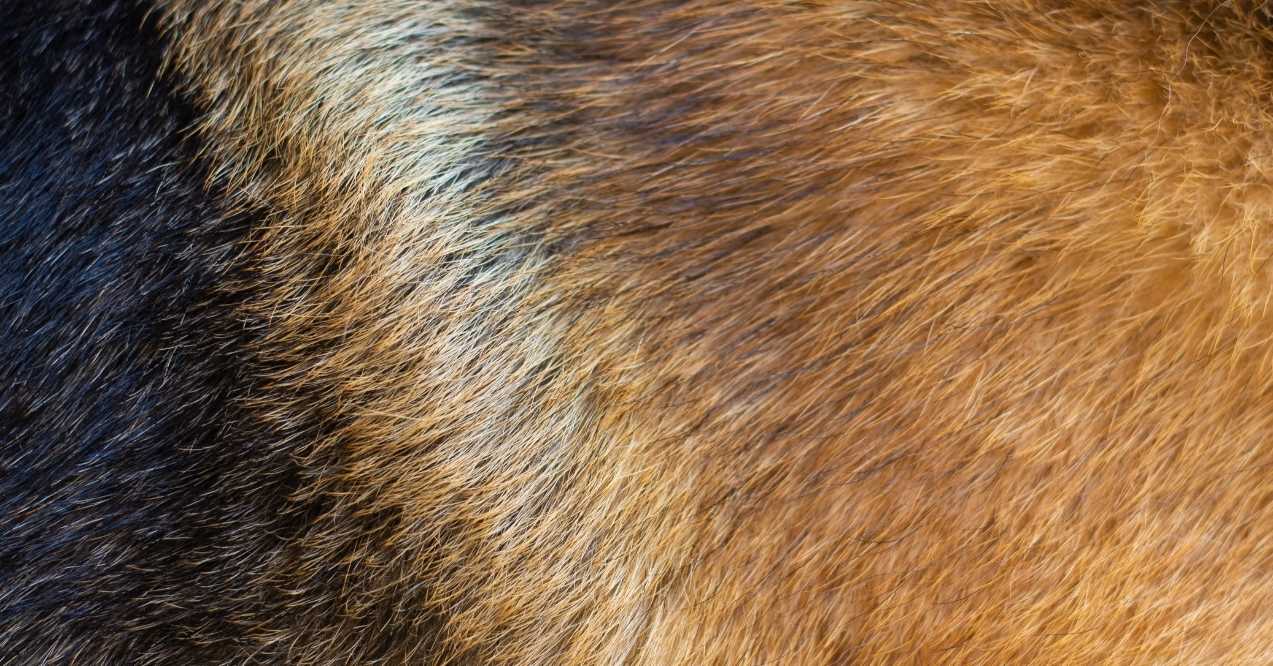Golden Retriever Allergies: Causes and Solutions
Golden retriever allergies affect many of these lovable, family-friendly dogs throughout their lives. From itchy skin to digestive issues, allergies can make your furry friend uncomfortable and impact their quality of life.
These beautiful dogs with their flowing golden coats may look perfect on the outside, but many struggle with sensitivities to their environment, food, and other triggers that cause discomfort and health issues. With the right approach to identification and management, you can help your Golden live a happy, itch-free life.
Are Golden Retrievers Hypoallergenic?
No, Golden Retrievers are not hypoallergenic. In fact, they rank among the higher-shedding breeds due to their dense double coat that sheds year-round, with heavier shedding during spring and fall. This abundant shedding creates dander (tiny skin flakes) that can trigger allergic reactions in both humans and the dogs themselves.
Their thick coats trap allergens from outdoors, bringing them into your home and creating an environment where allergens can multiply. While they may cause fewer reactions than some other breeds, their continual shedding means allergens are constantly present.
Check out more about Golden Retriever breed information to better understand your furry friend.
To minimize allergens from your Golden Retriever:
- Brush daily outdoors to prevent loose fur and dander from spreading indoors
- Give weekly baths with a gentle, dog-specific shampoo
- Wipe down their coat with a damp microfiber cloth after walks
- Vacuum your home frequently using a vacuum with a HEPA filter
Common Golden Retriever Allergies
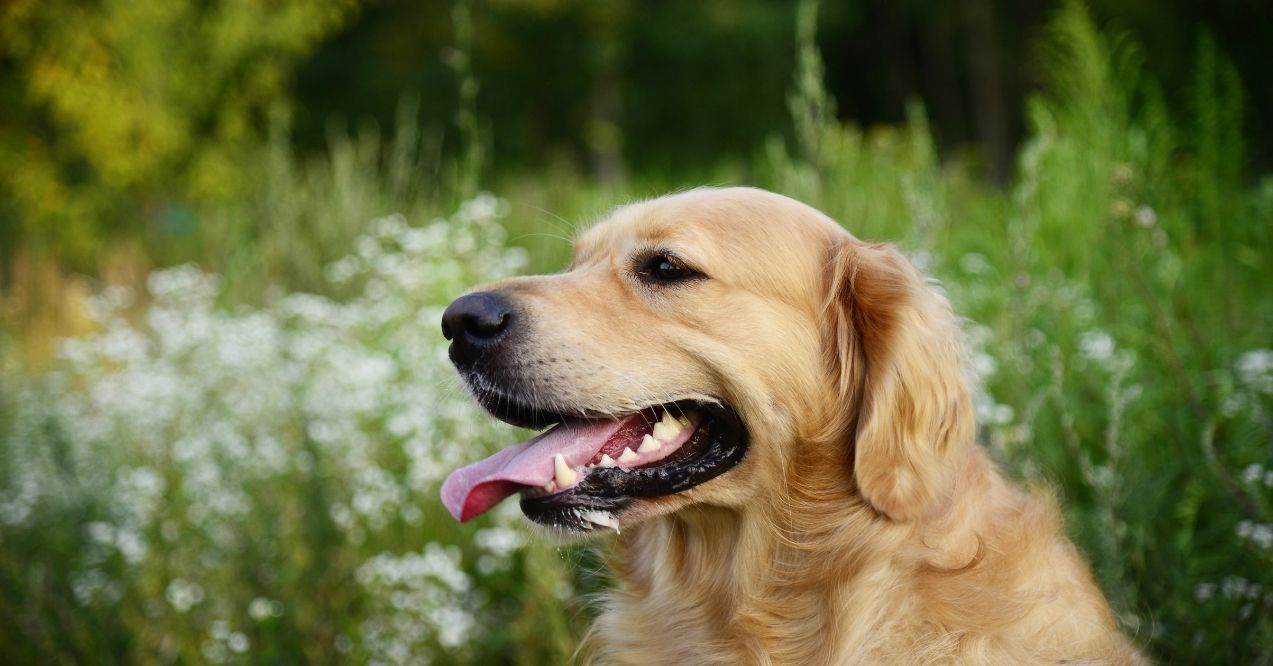
Golden Retrievers are known for their happy-go-lucky attitudes, but they also have a tendency toward several types of allergies. These allergies can make your dog itchy, uncomfortable, and even affect their behavior. Let’s look at the most common allergies that affect these beautiful dogs.
1. Airborne Allergies
Just like humans, Golden Retrievers can react to pollen, dust, mold, and other particles in the air. These airborne triggers often cause seasonal flare-ups, particularly in spring and fall when pollen counts soar.
Signs include sneezing, watery eyes, and paw licking. Your Golden may rub their face against furniture or carpet seeking relief. Home air purifiers can trap these particles, while daily paw wiping after walks removes allergens before they spread through your home. On high pollen days, limiting outdoor time and keeping windows closed may help reduce symptoms.
2. Food Allergies
Golden retriever food allergies typically involve protein sources. Chicken and beef top the list, but dairy, eggs, wheat, and soy can also cause reactions. Unlike humans, dogs often show food allergies through skin issues rather than digestive problems.
Warning signs include constant scratching, ear infections, hot spots, and sometimes gastrointestinal upset. Working with your vet on an elimination diet helps identify trigger foods. This process involves feeding a limited-ingredient diet with novel proteins (like duck or venison) and slowly reintroducing foods to spot reactions. Many Goldens thrive on specialized diets once trigger foods are removed.
3. Contact Allergies
When your Golden’s skin directly touches an irritating substance, contact allergies may develop. Common culprits include certain floor cleaners, laundry detergents, grass, and even plastic food bowls.
These allergies cause localized redness, bumps, and intense itching wherever contact occurred. Switch to pet-safe, fragrance-free cleaning products and consider stainless steel or ceramic food bowls. After playing in grass or wooded areas, a quick rinse or wipe-down with a damp cloth can remove irritants before they cause problems. Hypoallergenic bedding washed in gentle detergent may also help sensitive Goldens.
4. Flea Allergies
While any dog can get fleas, Golden Retrievers with flea allergies react severely to even a single flea bite. This condition, called flea allergy dermatitis, occurs when dogs develop sensitivity to proteins in flea saliva.
The reaction goes far beyond normal itching—causing intense discomfort, hair loss (especially at the tail base), and skin infections from constant scratching. Year-round flea prevention is essential, even in colder months. Vacuum frequently, wash pet bedding weekly, and treat your yard if needed. For dogs with known flea allergies, even brief lapses in prevention can lead to weeks of misery, so consistency is key.
Golden Retriever Allergic Reaction Symptoms
Spotting a golden retriever allergic reaction early can save your dog from unnecessary suffering. The signs range from subtle behavioral changes to obvious physical symptoms. Learn more about common Golden Retriever skin problems to better identify issues early.
Watch for these warning signs of allergic reactions:
- Intense scratching, especially focused on ears, paws, belly, or tail base
- “Hot spots”—moist, red, painful areas where persistent licking damages skin
- Red, irritated ears with a yeasty smell or recurring ear infections
- Excessive paw licking leaving saliva stains on light-colored fur
- Watery, red eyes or face rubbing against furniture or carpet
Your Golden may also show less obvious symptoms like sneezing, coughing, or changes in bathroom habits. Even behavior changes—irritability, restlessness, or decreased activity—can signal discomfort from allergies. The earlier you identify these signs, the faster you can provide relief.
Managing Golden Retriever Allergies
Managing golden retriever and allergies requires a wide approach that addresses both symptoms and underlying causes. Find more comprehensive advice about managing dog skin allergies on our blog.
Create an allergen-reduced environment:
- Install HEPA air purifiers in rooms where your Golden spends the most time
- Vacuum with a pet-specific vacuum at least twice weekly, focusing on your dog’s favorite spots
- Wipe your Golden’s paws and coat with a damp microfiber cloth after walks
- Use washable covers on dog beds and furniture that can be cleaned weekly
Bathing and grooming play vital roles in allergy management. Aim for baths every 2-3 weeks using a gentle, moisturizing shampoo made for sensitive skin. Between baths, spot-clean problem areas with dog-safe wipes to remove allergens before they cause irritation.
Golden Retriever Allergy Prevention
Prevention is always better than treatment when it comes to allergies. Establishing good habits early can save your Golden from discomfort and you from costly veterinary bills.
For puppies or dogs without current allergies, introducing a wide variety of foods slowly and carefully may help prevent food sensitivities from developing. Keep a food diary to track any reactions, noting even minor changes in skin, coat, or digestion.
Proactive care strategies:
- Perform weekly skin checks, feeling for bumps, scabs, or unusually warm areas
- Pay special attention to skin folds, ears, and between toes where problems often start
- Maintain a consistent grooming routine with brushing 3-4 times weekly
- Use dust mite-proof covers on dog beds and wash bedding weekly in hot water
Seasonal awareness is essential—many Goldens need extra attention during spring and fall when their heavy shedding coincides with high environmental allergen levels. During these peak allergy seasons, consider adding extra baths and more frequent coat wipes to your routine to prevent flare-ups before they start.
Conclusion
Living with golden retriever allergies requires patience and consistency, but with proper management, most Goldens live comfortable, happy lives despite their sensitivities. The key is identifying specific triggers through observation and veterinary guidance, then creating a personalized prevention plan.
With the right diet, environmental controls, and grooming routine, you can minimize your Golden’s discomfort and maximize their joy. Your dedication to managing these issues not only improves your dog’s health but also strengthens the special bond you share with your furry family member.
No, Golden Retrievers are not hypoallergenic. They shed considerably and produce dander that can trigger allergic reactions in sensitive individuals.
Watch for persistent itching, ear infections, skin rashes, and gastrointestinal issues. A veterinarian-supervised elimination diet can confirm specific food allergies.
Common signs include excessive scratching, red or irritated skin, paw licking, ear infections, hot spots, sneezing, watery eyes, and changes in behavior.
Consider limited-ingredient foods with novel proteins like duck or venison. Avoid common allergens such as chicken, beef, dairy, wheat, and soy unless proven safe for your dog.
Advertisement. This site offers health, wellness, fitness and nutritional information and is designed for educational purposes only. You should not rely on this information as a substitute for, nor does it replace, professional medical advice, diagnosis, or treatment. If you have any concerns or questions about your health, you should always consult with a physician or other health-care professional. Do not disregard, avoid or delay obtaining medical or health related advice from your health-care professional because of something you may have read on this site. The use of any information provided on this site is solely at your own risk.

